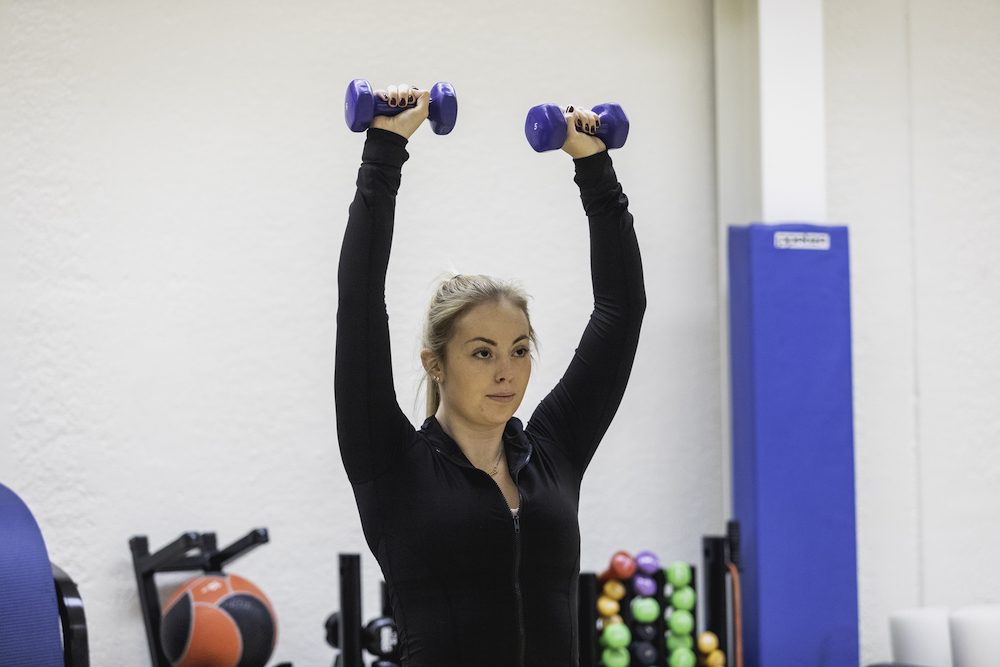Marquette University President Michael R. Lovell announced today that an anonymous alumni couple has launched a $10 million giving challenge to transform and integrate the university’s student health, wellness and recreation services.
The major gift propels Marquette toward realizing a vision and long-stated priority to improve campus health and wellness by physically bringing together three key student-centric areas: fitness and recreation, medical services, and mental health services.
“Thanks to the leadership of our generous donors, we have an urgent opportunity to significantly enhance the student experience and shape a culture of wellness at Marquette,” President Lovell said. “We aspire to be among the healthiest campuses in the world, and that starts with cultivating the mind, body and spirit of our students and our community.”
The anonymous couple has already contributed a leadership gift of $5 million and have committed to giving another $5 million once the university community raises $10 million in new gifts and pledges. Their goal is to inspire Marquette alumni, parents and friends to support this signature project.
Donations to the fund can be made here.
Growing fundraising momentum
The gift adds to recent fundraising momentum, coming just two weeks after President Lovell shared that the university’s Time to Rise campaign has surpassed $500 million in funds raised toward its $750 million goal.
The Time to Rise campaign is the most ambitious in Marquette’s 140-year history, having already secured more than 51,000 donors and $215 million in scholarship funds. Benefactors have helped to dramatically transform the campus environment by executing on its Campus Master Plan. Projects include The Commons — Marquette’s first newly constructed residence hall in more than 50 years — the Athletic and Human Performance Research Center, and the new home for Marquette Business and innovation leadership programs, which is currently under construction.
“Our passionate alumni, parents and friends are confidently investing in our university and their collective impact is creating profound philanthropic momentum,” said Vice President for University Advancement Tim McMahon. “We are grateful for the generosity of our alumni couple and believe this challenge will generate support from alumni, parents and friends to make this endeavor a great success.”
The future of health and wellness at Marquette
Throughout his tenure, President Lovell has challenged university leaders to think differently about how Marquette fosters a culture of wellness on campus, setting forth a vision that positions recreation, fitness, clinical services and mental health services under one roof. Delivering on this vision is a stated priority in Marquette’s Campus Master Plan, a flexible roadmap for campus capital projects.
Marquette’s largest recreation facility, Helfaer Recreation Center, was constructed in 1974. Along with the university’s Rec Plex in Straz Tower, which opened in 1993, the two spaces combined log more than 212,000 annual visits by students, faculty, staff and community members who use the fitness facilities and attend 50 group fitness classes per week.
Now, university leaders are pursuing a more integrated, holistic approach to health and wellness. Guided by the university’s strategic plan, Beyond Boundaries, and the Campus Master Plan, they are exploring integrating services, including bringing together the campus’ fitness and recreation facilities with the Counseling Center and the Marquette University Medical Clinic, which are student-centric services currently dispersed across campus.
Student mental health across the country has declined during the COVID-19 pandemic, with a recent study which found that half of college students in fall 2020 screened positive for depression and/or anxiety.
“The guiding principle shaping our vision for health and wellness is the Jesuit tenet of cura personalis, or care for the whole person,” said Dr. Xavier Cole, vice president for student affairs. “The global pandemic has shined a spotlight on health inequities as well as the urgent need to provide visible wraparound health and wellness services. We can take a big step forward by further emphasizing healthy behaviors and reducing barriers for academic success.”
Leading in health on campus and in the community
Under President Lovell, Marquette has made significant advances in health and wellness across campus that have benefited students, faculty and staff, as well as the Near West Side neighborhood. In 2017, the university brought a Sendik’s Food Market Fresh2Go store to campus, increasing access to affordable, nutritious food.
Additionally, the university added a seasonal dome to its Valley Fields facility, which has increased access to field space during the winter months for athletics, ROTC, and many intramural and club sports. And the addition of new green spaces on campus, such as Eckstein Common, has provided increased opportunities for students to recreate, relax and socialize.
Across Milwaukee and the region, President Lovell and his wife, Amy, have rallied community members through Scaling Wellness in Milwaukee (SWIM), an effort to tackle the region’s “trauma epidemic.”
By the numbers:
- More than 212,000 annual visits to Marquette’s current recreation facilities
- 13,000 attendees in group fitness classes, with 50 classes per week
- 16,800 open swimmers, 2,100 private swimming lessons
- 5,000 students in intramurals — 650 teams, playing more than 1,400 games
- 1,100 students in more than 40 club sports
- 10,858 student visits to the Marquette University Medical Center in fiscal year 2021
- 3,161 flu vaccines administered by the Marquette University Medical Center in fiscal year 2021
- Since 2012, unique client contacts and the percentage of the Marquette student population seen at the Counseling Center have steadily increased
- 5,448 telehealth visits to the Counseling Center during the 2020-21 academic year, up from 5,096 visits the prior year



